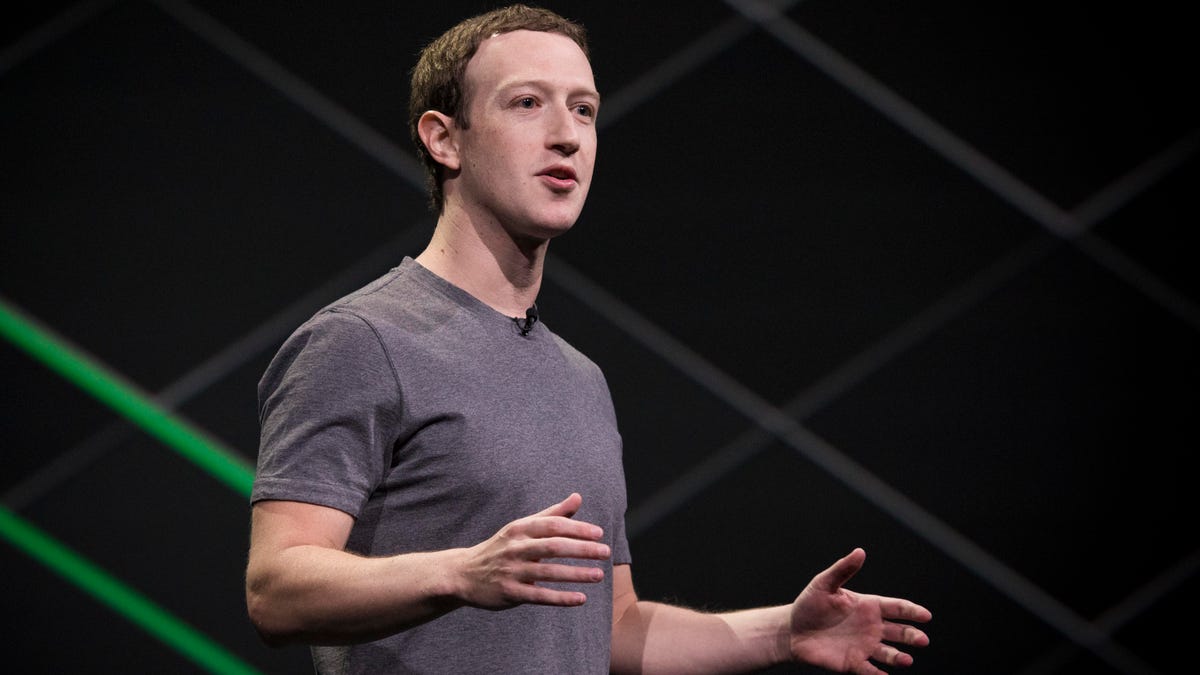Facebook admits social media is bad for democracy, sometimes
The social network really, really wants to be a "source for democratic good." The trick will be making that happen.

Facebook's founder Mark Zuckerberg said his goal for 2018 is to fix his social network.
Facebook suddenly can't stop thinking about what happens to democracy when social media gets involved.
The company acknowledged in three blog posts Monday that social media can be a simmering source of problems for democratic societies. It's an issue that Facebook's been grappling with since the controversies of the 2016 US presidential election.
"In 2016, we at Facebook were far too slow to recognize how bad actors were abusing our platform," Samidh Chakrabarti, Facebook's product manager of civic engagement, said in one of the posts.
Chakrabarti pointed directly to fake news as an issue that plagues social media, along with foreign interference, political harassment, unequal participation and echo chambers.
Facebook, which boasts 2 billion users worldwide, has been gradually coming to terms with its massive influence on how citizens get and share information that may not always be trustworthy, and how this in turn affects politics. It hasn't been an easy process: Shortly after Donald Trump won the 2016 presidential election in the US, Facebook CEO Mark Zuckerberg said it was "crazy" to think that fake news on Facebook swayed the results.
Not so crazy, though, to Congress. Two months ago, US senators and representatives grilled the top lawyers from Facebook, Twitter and Google about Russian influence on the election.
A time to 'get serious'
Zuckerberg has seen the light. Earlier this month, he said his goal for 2018 is to "get serious" and fix the issues confronting the social network, including Russian interference and online hate, harassment and abuse. A week later, the company took one big step, saying it would change the news feed -- the stream of posts we see when we visit Facebook -- to focus more on family and friends than on brands and businesses.
The hope is that we'll find perusing Facebook a more wholesome experience.
"Now, we're as determined as ever to fight the negative influences and ensure that our platform is unquestionably a source for democratic good," Katie Harbath, Facebook's global politics and government outreach director, said in another of the Monday posts.
The third of the three posts, part of Facebook's "Hard Questions" series, came from Cass R. Sunstein, a professor at Harvard Law School. While finding much to like in social media, he said venues like Facebook can hurt democracy by creating an environment that fosters division and polarization.
"At best, it's a problem," he said. "At worst, it's dangerous."
The message across the board: Social media really can be good for democracy -- if it's run properly.
Chakrabarti acknowledged that over a two-year period that included the 2016 elections, Russian entities created 80,000 posts that reached around 126 million people in the US, "essentially using social media as an information weapon." On the plus side, he said, Facebook's voter registration efforts during that campaign led more than 2 million people to register to vote, and a ballot preview tool helped raise awareness of what was being voted on.
"If there's one fundamental truth about social media's impact on democracy it's that it amplifies human intent -- both good and bad," he said. "This is a new frontier and we don't pretend to have all the answers."
Originally published Jan. 22 at 6:25 a.m. PT.
Update, 8:18 a.m. PT: Adds background and more information from the Facebook blog posts.
iHate: CNET looks at how intolerance is taking over the internet.
Security: Stay up-to-date on the latest in breaches, hacks, fixes and all those cybersecurity issues that keep you up at night.

